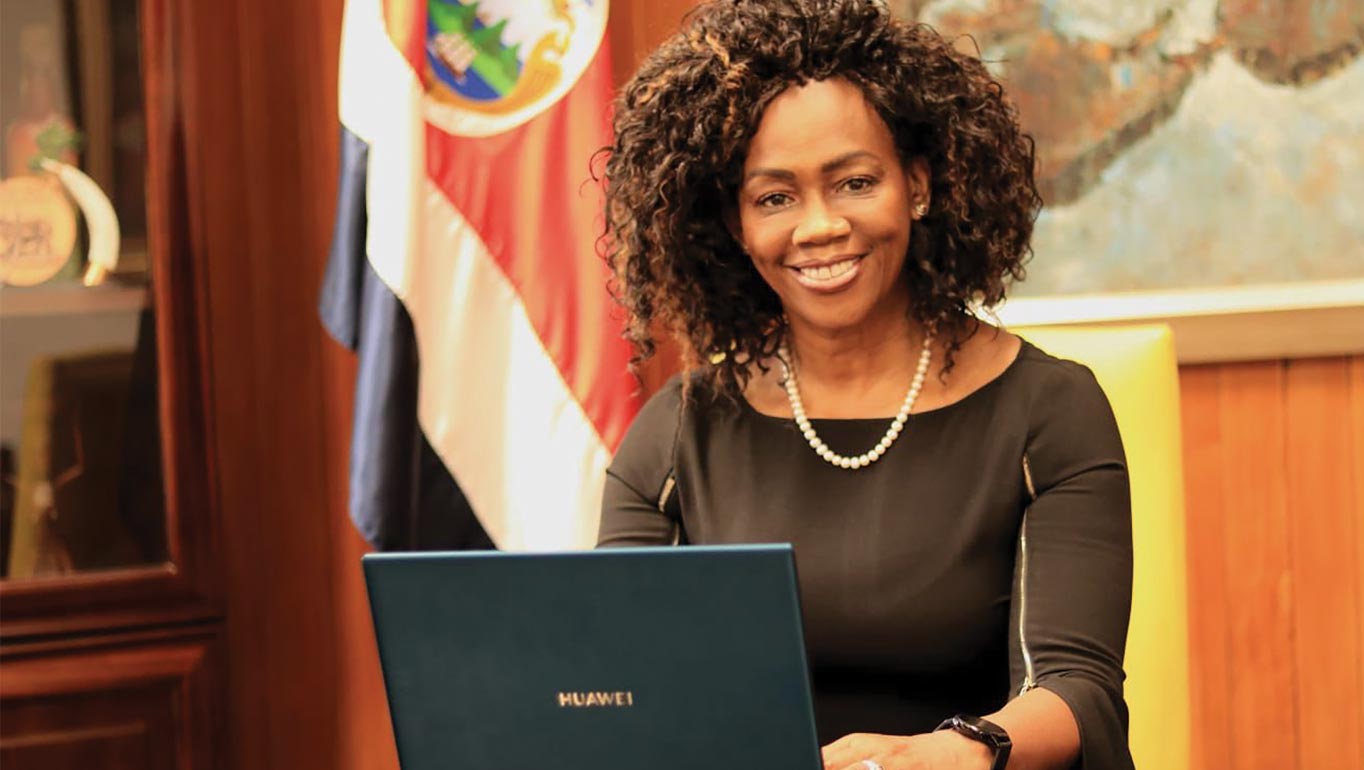Epsy Campbell Barr is the current Chairperson of the UN Permanent Forum on People of African Descent. She is a former Vice President of Costa Rica and Minister of Foreign Affairs. She was twice a congressional representative in the Legislative Assembly of Costa Rica. She is an Afro-feminist and human rights and environmental activist. Ms. Campbell Barr has received various international awards for her struggles in favor of sustainable and inclusive societies.
Could you briefly tell us about the Permanent Forum?
The Permanent Forum on People of African Descent is a platform that was created by the United Nations General Assembly in August 2021, and was fully operationalized in March last year. Its main function, as stated in our mandate is: “to contribute to the full political, economic and social inclusion of people of African descent and provide expert advice to UN bodies, programs, funds and agencies”. One of our main tasks is to contribute to the elaboration of a United Nations declaration on the promotion, protection and full respect of the human rights of people of African descent. The Permanent Forum also contributes to the fulfillment of the Agenda for Sustainable Development for people of African descent by aiming to achieve truly inclusive, diverse, peaceful and just societies.
As the former Vice President of Costa Rica, what motivated you to join the Permanent Forum?
One of the central issues in my life as a political leader, activist and researcher for the last 30 years has been the struggle for equality, rights and the inclusion of people of African descent, especially women. The international and national agenda around the principles of recognition, justice and development for people of African descent is ultimately part of the wider agenda towards real democracy and long-term sustainability of our societies. That is why, during my term as Vice President of Costa Rica, I promoted both the commemoration of the International Day for People of African Descent and the establishment of the Permanent Forum on People of African Descent through our UN delegation in New York. I took on the responsibility of being part of the Permanent Forum so that, together with other members, and at the highest level, we can ensure its consolidation as an instrument to advance the causes of the dignity and human rights of people of African descent.
In your view, what is the biggest challenge in combating racism and racial discrimination faced by people of African descent?
The biggest challenge we face is the lack of a real political commitment by states to act forcefully against all manifestations of racism and racial discrimination. A real commitment means investing economic resources, recognizing the disproportionate impact of racism and racial discrimination on people of African descent; making tough political decisions; developing zero tolerance programs against racism with compliance indicators both in the public and private sectors; involving different stakeholders in our societies; giving leading roles to people of African descent in all decision-making spaces, and educating and raising awareness around racism and its harmful impact.
What are the current opportunities to address racism and racial discrimination? How can the Permanent Forum contribute to addressing these issues?
The brutal murder of George Floyd generated a global awakening of conscience against racism and racial discrimination, and societies around the world demonstrated and organized around a devastating reality, the reality of systemic racism that affects millions of people of African descent. The report of the UN High Commissioner for Human Rights, Michelle Bachelet, on systemic racism, is an important tool to call for action against anti-Black racism that is persistent worldwide. The Permanent Forum also has the opportunity to convene diverse sectors, to consolidate proposals and to advance an ambitious plan against racism and racial discrimination. This includes the involvement of the private sector, academia, national and local governments, as well as social, economic and cultural organizations. The Permanent Forum can in fact promote a global pact for action against racism, through its work in contributing to the elaboration of a United Nations declaration on the promotion, protection and full respect of the human rights of People of African Descent.
Can you share with us your views about how the role can be played by young people in this struggle?
The role of youth is fundamental in combating and defeating racism. Young people from all identities have a great capacity to mobilize and are doing so now. They are generating alliances and promoting action, from education and awareness on racism, to the promotion of a culture of respect and dignity amongst all people. The youth are instrumental in creating social networks to promote a global commitment against racism and racial discrimination. I am absolutely convinced that young people are the true leaders of the transformation of society, and we must support them, amplify their voice, and build their participation and leadership in this process. That is why I call them the “Generation of Light”, because they are paving the way for a new humanity that is centered on respect, equality among all people, compassion, sustainability and justice.
As you know, in the past few years around the world, there have been discussions about racism in institutions. How do you think the UN can address issues of racism within its own organization?
The UN should establish accountability within the organization with compliance indicators, affirmative action, and inclusive recruitment practices, as well as an awareness and training process for its entire structure, similar to its commitment to gender equality. The execution of this requires adequate resources, and accountability on the progress achieved. The UN should lead by example that it is possible to eradicate racism and racial discrimination. I welcome ongoing efforts within the UN to address the issues, which I hope will bear fruit in the near future.



